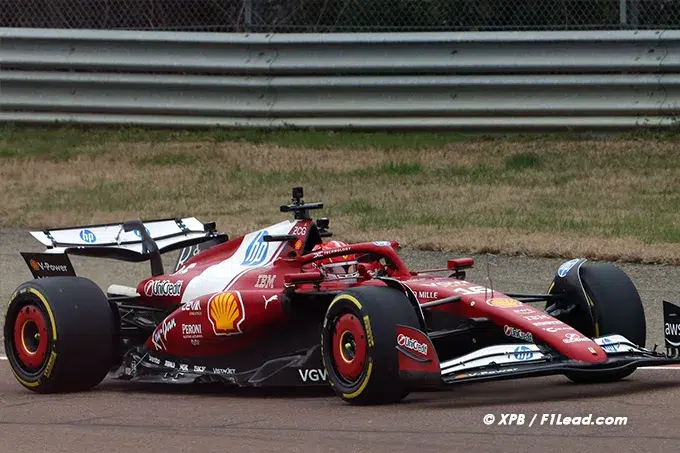Ferrari’s engine chief Enrico Gualtieri reveals why reliability remains a never-ending challenge, even with development freezes, as the team pushes forward.
Ferrari has worked on its new car, both on the chassis and the engine. Enrico Gualtieri, head of the Scuderia’s engine department, explains what launching a new single-seater represents.
“It’s an emotional and exciting moment. You realize you’re ready to hit the track, but the emotions are mixed. We know we’re about to do the shakedown and the tests, but at the same time, we think about what we’ve done and what we could have done better,” said Gualtieri.
“But it’s also a great moment for all the guys who have worked with passion for many weeks, for the entire team, and for me, who has the privilege of representing the team.”
The Italian details the work the engine department can do with the current car, despite the V6 engines being frozen in their development.
“Our job is always to extract the maximum potential from what we have. That hasn’t changed since last season. We’ve just shifted our focus. We have concentrated more and more on extracting performance from the engine, regardless of conditions or circuit.”
“We have mainly worked on controlling and optimizing engine performance, trying to get the most out of the procedures and ensuring everything is as efficient as possible at every event.”
Even though performance itself no longer evolves, power unit reliability remains a key area of work, even in the final year of regulations: “Reliability is an endless task, a continuous learning process, and a path of improvement. At every event, in every race, we have the opportunity to learn.”
“What we focused on this year was making sure everything is ready for each race. What last year confirmed is that even with an engine freeze, reliability is never guaranteed in advance.”
“Quality, preparation, and component consistency will be crucial this year. We made progress last season, and we must continue on this path, keeping an eye on every detail that can improve. It’s an endless process.”
The engine’s operating conditions will also determine the work done on it: “The car’s development will continue, which is a natural trend to maintain performance. This impacts how the engines are used.”
“The second factor will relate to the car and the project, as we will have the smallest amount of power bench time we’ve ever had. That’s a challenge I expect to face this season.”
“On one side, we will have to deal with more severe engine usage, and on the other, we’ll have less time on the test bench. That’s why we must be fully prepared.”
Gualtieri explains that the lack of engine component development also allows for better stock management and a more strategic approach to component use throughout the season, helping durability: “It’s true that engine component management has changed in recent years.”
“A few years ago, the engine had different performance or reliability parts at each race. On the other hand, the engine parts pool has been quite uniform in recent years, and we no longer introduce new components.”
“This gives us more flexibility in selecting the parts we use each weekend. We try to maximize each component’s potential for a specific race, based on the previous event and the characteristics of a Grand Prix.”
- Discover More>Ferrari’s Title Dream: Hamilton or Leclerc?
- Follow us on >Facebook and >Twitter for F1 updates
Ferrari’s Relentless Quest for Engine Perfection Ferrari’s Relentless Quest for Engine Perfection Ferrari’s Relentless Quest for Engine Perfection
